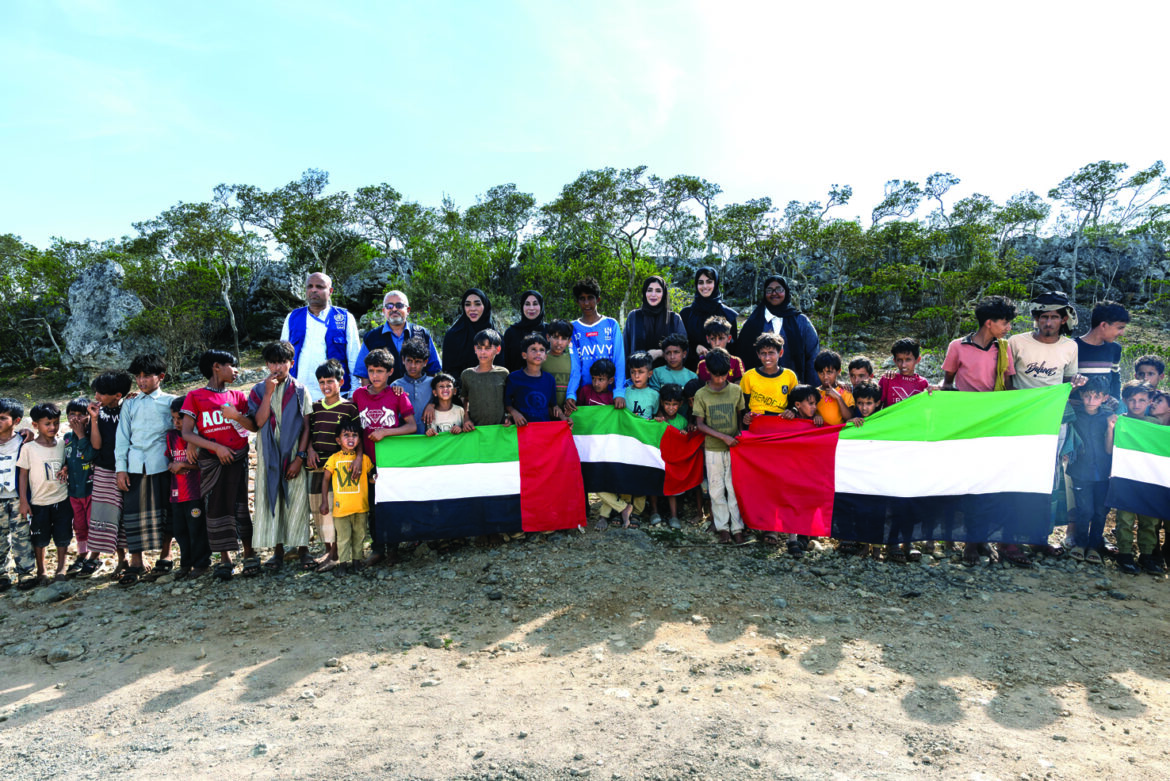By Staff Reporter
SOCOTRA: Field teams from the UAE and the World Health Organisation (WHO), in close coordination with Yemen’s Ministry of Public Health and Population (MoPHP), have completed the first phase of a comprehensive baseline assessment on Socotra Island in Yemen.
The multi-phase operation, which began in late May, will comprise four scheduled field visits over the course of one year by joint teams from both entities.
The assessment is the initial phase of a comprehensive programme in Socotra, aiming over the next two to five years to reduce mortality related to poor health and malnutrition by 20 percent through an integrated approach to strengthen the health system. The baseline assessment covered 38 enumeration areas (villages) across 29 sub-districts of Socotra.
As per preliminary results, 93 percent of targeted health facilities were surveyed. Data were collected from 4,214 households as part of the household listing process. Field teams conducted over 930 caregiver interviews, and took anthropometric measurement from eligible children and mothers, exceeding the initial target, and facilitated 12 focus group discussions with diverse community groups.
All 15 planned key informant interviews with relevant and multi-sectoral stakeholders including local and national authorities, donor and UN agencies were completed.
The teams also conducted 546 client exit interviews to gather beneficiary feedback on the services provided, exceeding the initial target.
The baseline assessment will now move into the data cleaning, verification and analysis phase, paving the way for a final report that will reveal the current status of the maternal and child health and nutrition status of the community and the readiness and performance of the health facilities, including for health emergencies preparedness and response to guide evidence-based planning for the next phases of intervention, helping ensure that response activities align with identified community needs and health facilities priorities.
Upcoming stages of the joint project implementation include the procurement and distribution of medical and non-medical supplies, recruitment and deployment of technical experts and service providers, technical training programmes and community awareness campaigns. Activities will be implemented in coordination with WHO, the Ministry of Public Health and Population and other partners, ensuring alignment with national health strategies.
The efforts reflect the UAE’s data-driven humanitarian approach, implemented in partnership with leading international health organisations to create sustainable impact and improve public health indicators among vulnerable populations.
Source: Emirates News Agency


